Creating a map workflow in orange¶
This is a tutorial meant for someone who hasn't used Orange at all. It will create a very simple, but powerful, workflow for geographical data.
Orange workflow file
This tutorial orange file can be downloaded from the repository in this folder: https://github.com/fablabbcn/smartcitizen-docs/tree/master/docs/assets/ows
The name of the file of this workflow is example_map.ows
Requirements:
- Having installed
Orangeand the add-ons ofmecoda-orangeandgeo. Here you can see the tutorial - Knowing the particular device and the time range that you want to analyse
- Using a kit that has a GPS installed
Look for the kit that you want to use¶
We're starting from scratch, a white canvas for this example.
Click on the widget of Smart Citizen Search (on the widgets menu) from the MECODA extension. It will create the widget on the canvas on the right:
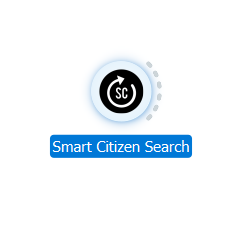
If you click on the new widget that just have appeared in the canvas, a window will pop up with the available options:
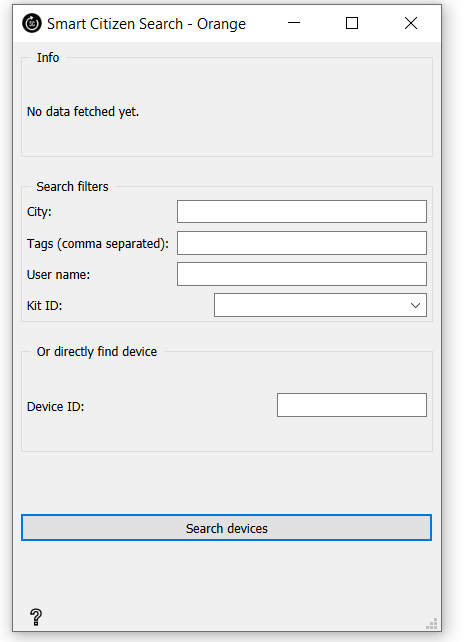
Here you can search for your Kit. There are several options to retrieve this information but in this case we have the URL of our kit from the platform: https://smartcitizen.me/kits/15618. This URL tells us the Device ID that we want at the end of the URL (in this case 15618).
Once we have it, we type it or paste it in Device ID and press Search Devices:
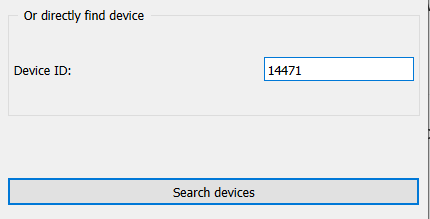
It will tell us that we have just one result:
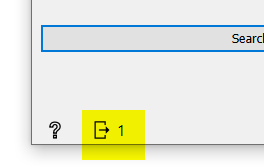
Now we found our device, we will get the data that is stored in it!
Get the data from the kit¶
We will now add another widget: this time, the Smart Citizen Data, also in the MECODA extension:

It will be set in the canvas near the other widget of Smart Citizen Search that we have already configured:
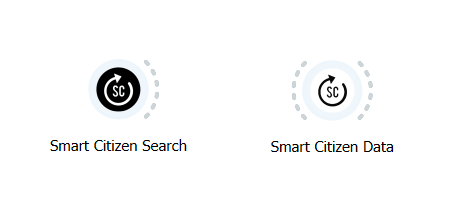
Now, we will connect both of them by pressing the dotted line on the right of the Smart Cizizen Search and dragging the cursor into the left dotted line of Smart Citizen Data. Once you have it would look like this:
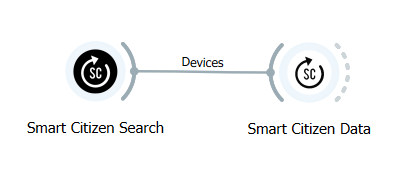
To see if everything is correct we can click on Smart Citizen Data and check it out:
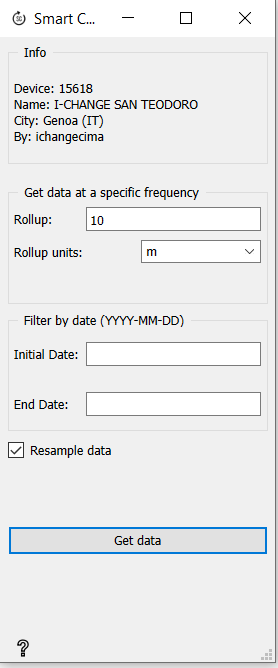
In the Info panel you will see the data of the device which are about to load data from.
Troubleshooting
If there is no information about the device on the top it means that the panel is not well connected or there is no device found (check if you pressed Search devices in the node Smart Cizizen Search)
Now we will define what data we want to collect. In this example we're getting the data that we have every 10 minutes and we want to get just from one month. From 01/10/2022 to 30/10/2022. To do all that, we will set the rollup to 10 and the rollup units in m (minutes). (That's the setting by default).
Data can be gather in the following units
y - years M - Months w - weeks d - days h - hours m - minutes s - seconds ms - milliseconds
Then we set Initial Date to 2022-10-01 and End Date to 2022-11-01. And we tick off the box of Resample data. You will have something like this:
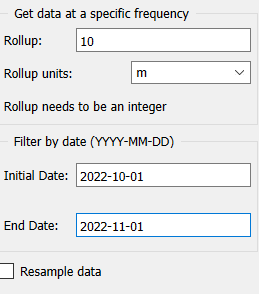
Now we have to press Get data to fetch the data.
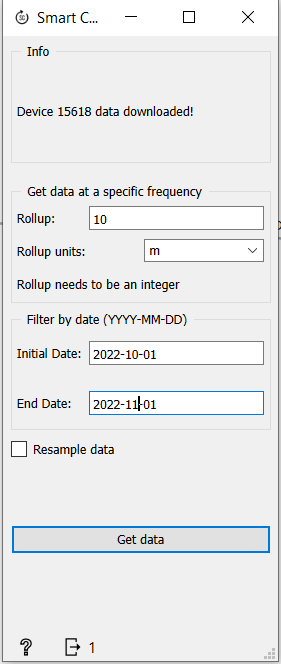
It will take some seconds to fetch the data from the platform. Once it's done the Info panel will read: Device 15618 data downloaded!
See the data in a table¶
As an optional step, we can look at the data in a table format. Place a Data table widget from the left menu in Data:
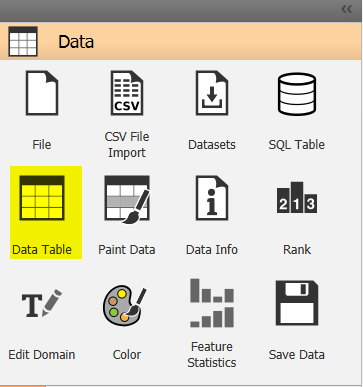
We click on it as we have clicked on other widgets and it will appear on the canvas:
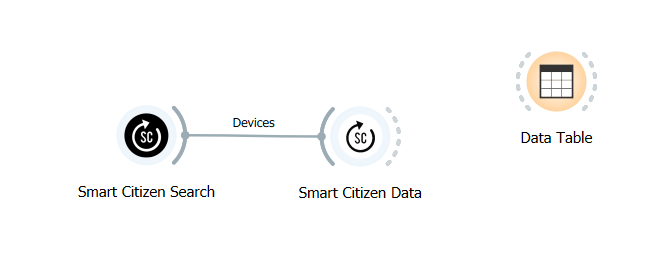
We connect it to the Smart Citizen Data by dragging it's output to the Data Table like this:
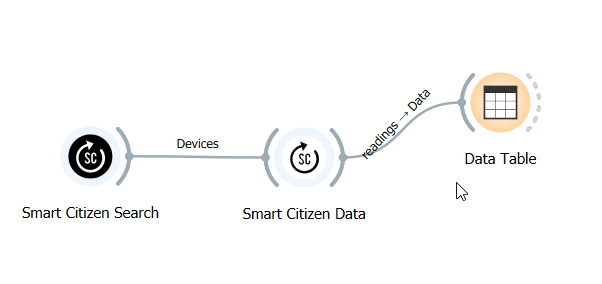
If we open it, we'll see the data that we have gathered. If we scroll to the right (using the scroll at the bottom) we'll see that we have a column with Latitude and other with Longitude:
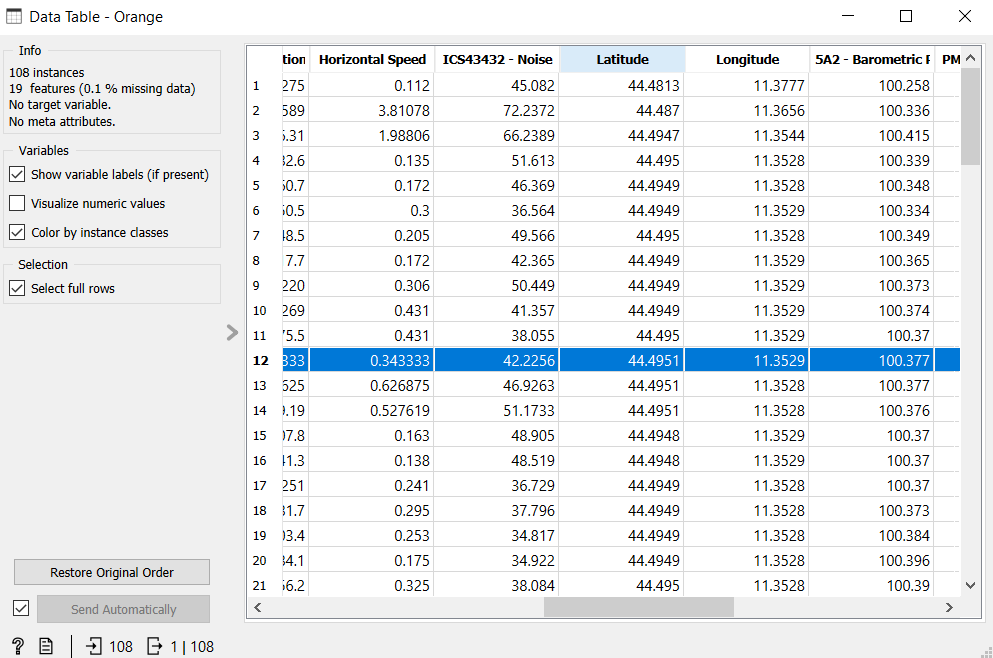
More info?
The Data tables have more properties that are explained here https://orange3.readthedocs.io/projects/orange-visual-programming/en/latest/widgets/data/datatable.html
Now we add one more widget to print this data in a map.
Create the map using Geo Map widget¶
Now, go to the "Geo" panel on the left and click on Geo Map widget:
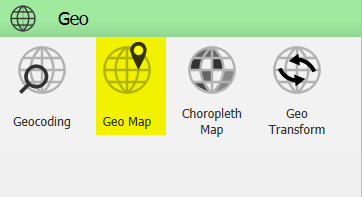
It will look like this:

As we have done before, we connect the data table into the Geo Map dragging from the right of the data table (the output) to the left of the geo map (the input). When we click on the geo map, we see this:
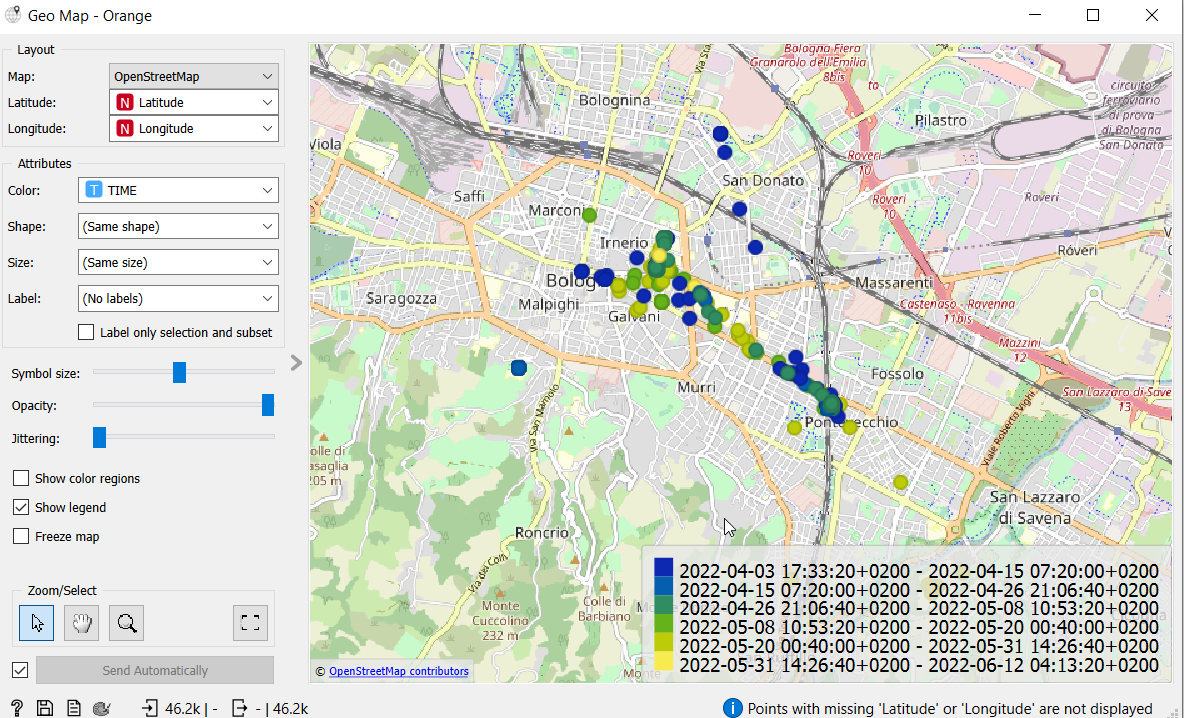
We can adjust colors, sizes and parameters using the attributes on the left part of the GUI.
Other colour palettes
For changing the colour palletes use the widget "color" between the Geo Map and the data table.
All the data that doesn't have latitude and longitude is ignored by default by the widget Geomap